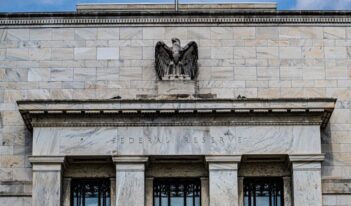
Law professor argues that financial reform legislation hurts consumers.
The Great Recession devastated the American economy and disrupted the lives of millions of Americans who were laid off or lost their homes to foreclosure. In an effort to promote economic recovery and ward off another financial crisis, Congress passed legislation to reform the financial system and establish safeguards for American consumers. By many measures, the economy is now recovering, but a recent paper based on the congressional testimony of a law professor at George Mason University argues that the financial reform legislation is actually hampering economic growth.
Todd Zywicki maintains in his recent paper summarizing testimony given to the U.S. House of Representatives Financial Services Committee that, five years after its enactment, the recession-responsive legislation is failing to achieve its goal of protecting consumers and investors. He contends that several pieces of financial reform legislation are increasing inflation, reducing consumer choice, and limiting millions of Americans’ access to credit.
Zywicki first criticizes the Durbin Amendment for decreasing the availability of free checking accounts. He hails consumer access to free checking as “one of the most important pro-consumer innovations in the history of retail consumer financial services.”
The Durbin Amendment, passed as part of the Dodd-Frank Wall Street Reform and Consumer Protection Act, caps debit card interchange fees for banks with over $10 billion in assets. In a previous paper discussing the effect of the Durbin Amendment, Zywicki cites a Federal Reserve Board study finding that affected banks have in part offset the lost income from interchange fees by charging consumers for checking accounts. Furthermore, Zywicki argues that consumer access to free checking had increased more than seven-fold in the years leading up to the Great Recession – from under 10% in 2001 to 76% in 2009. In the wake of Dodd-Frank, however, he finds that only 38% of banks now offer free checking accounts.
In addition to more consumers having to pay fees to maintain their checking accounts, he notes that the fees are twice as high on average as they were before Dodd-Frank. As a result, Zywicki argues, checking accounts – which used to be a hallmark of financial inclusion – are increasingly out of reach of millions of low-income and young consumers. Zywicki contends that less access to free checking has forced millions of young and lower-income Americans to rely on alternative financial services such as check cashers and pawn shops.
Zywicki says that a second negative impact of reform legislation has been a decrease in consumer access to credit cards. According to a report issued by the federal Consumer Financial Protection Bureau (CFPB), the Credit Card Accountability Responsibility and Disclosure Act, which aims to “establish fair and transparent practices relating to the extension of credit,” contributed to the closure of more than 275 million credit card accounts and the elimination of $1.7 trillion in credit available from credit cards between July 2008 and December 2012. Moreover, among households with the lowest quintile of credit scores, the percentage with credit fell from 65% in 2008 to 54% in 2010, according to a Federal Reserve Board bulletin. Zywicki argues that more limited access to credit cards causes consumers to rely increasingly on higher-cost products like payday loans.
Zywicki claims that a third negative impact has been the imposition of new regulatory burdens on small, community banks. These burdens, he argues, stem from a CFPB rule on qualified mortgages, which requires lenders to make a good-faith effort to determine a consumer’s ability to repay any credit transaction secured by a dwelling, and creates some protections from liability for qualified mortgages. The new regulations have caused banks to be more cautious when lending to riskier borrowers. Zywicki argues that this mortgage regulation has deprived community banks of the ability to give mortgages based on relationships with their customers. He cites a George Mason University market research survey which reports that over 60% of small banks have made changes in their mortgage lending programs and 15% are considering or have already exited the residential mortgage market as a result of these regulations.
A fourth negative impact comes from regulators’ infringement on individuals’ privacy, says Zywicki. He criticizes the CFPB’s collection of financial account information from millions of Americans. According to an op-ed by Newt Gingrich published in the Wall Street Journal, the CFPB currently collects and monitors information for almost 600 million American credit card accounts and is expanding to collect information for 95% of all credit card accounts by 2016. Zywicki notes that, in light of recent data security breaches at the Internal Revenue Service and Office of Personnel Management, the CFPB’s collection of data poses a major privacy threat to millions of Americans. Moreover, according to Zywicki, these data collection practices are unnecessary for the CFPB in fulfilling its regulatory role.
Finally, Zywicki argues that the CFPB has overstepped its statutory boundaries by finding illegitimate ways to expand its already broad delegation of power. Zywicki points to the CFPB’s regulation of loans made by auto dealers, third-party sellers of cell phone apps, and for-profit colleges as examples of the agency’s actions that fall outside of its originally intended scope of power.
Overall, Zywicki bemoans Dodd-Frank as wasting “the historic opportunity presented by the financial crisis to create a modern and coherent consumer protection regime.” He concludes that the implemented regulations are leading to “higher prices, less innovation, and less choice in consumer credit products, while doing little to improve consumer protection.” Despite many metrics that indicate the economy is recovering, Zywicki says that the legislation enacted in the wake of the recession has failed to provide any meaningful protection to Americans, especially low-income and young consumers.



